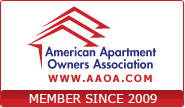Tristan is the Executive Vice President and shareholder with the law firm of Petrie+Pettit and focuses his practice in the area of landlord-tenant law representing landlords and property management companies throughout Wisconsin.
Call us: (414) 276-2850
Must A Landlord Provide A Census Taker with Information About His Tenants?
Posted by Tristan R. Pettit, Esq. in Census / Comments
I have recently recieved several calls from my landlord and property manager clients asking me whether or not they have to provide census workers (called "census enumerators" or "census takers" ) with information about their tenants. Census employees started knocking on the doors of those who failed to return their census questionnaire on May 1st and will continue to do so until July 10th.
The short answer to the question is "yes." If a census taker has attempted to contact and obtain answers to the census questions from your tenant, and been unable unable to do so, the census taker is allowed to -- and in fact, is required to -- contact the landlord or manager of the rental property to obtain the requested information about your tenant.
Typically, providing personal information about your tenant to a third party is not something that you want to do unless you enjoy being sued. But providing a census enumerator with the answers to the questions from the census questionnaire regarding your tenants is one of the few exceptions to this rule. The Department of Commerce has clearly stated that landlords and property managers of rental property will not be in violation of any privacy laws if they provides the requested information about their tenants to the census taker. In fact, if a landlord refuses to provide the census enumerator with the requested information about his/her tenants, s/he may be fined up to $500.
The applicable law is found at Title 13 of the Code of Federal Regulations (CFR), Chapter 7, Subchapter II, Sections 221 and 223.
If you just clicked on the above links and attempted to read the two code sections, I commend you - they are difficult to read (and understand) and are filled with all kind of archaic language that is referred to as "legalese." Since I actually want this post to educate you -- and not piss you off -- allow me to paraphrase the law for you:
1. If a census enumerator is unable to contact the tenant and obtain the census info from the tenant, then the landlord or manager must assist the census employee in answering the census questions regarding their tenants.
2. The landlord or manager may ask to see the census workers identification before divulging any information.
3. The first question that the enumerator will ask is whether or not the apartment unit was occupied on April 1, 2010.
4. If the unit was not occupied by anyone on April 1, 2010, then the census employee questions for you regarding that rental unit should be done.
5. Assuming that the unit was occupied by a tenant on April 1, 2010, then you should provide the census enumerator with answers to as many of the census questions as possible. The census questionnaires questions can be found here. Two of the questions on the census questionnaire ask about an individual's race, the census enumerators are aware that you may not know this information about your tenants.
6. You are not breaking any privacy laws by answering these questions about your tenants for the census taker.
7. You may be fined up to $500 for failing to provide the census taker with this information about your tenants.
In summary, if the census taker is unable to reach your tenant and obtain answers to the census questionnaire from them, then you as the landlord or manager, are required to assist the census employee by providing the census employee with that information. Failure to do so may result in a $500 fine.
After you are done talking to the census worker, you may want to talk to your tenant about how important it is to complete their census questionnaire next time -- in part so that their landlord doesn't have to spend all of his/her limited time, doing the tenant's work for them. Good luck with that : )




